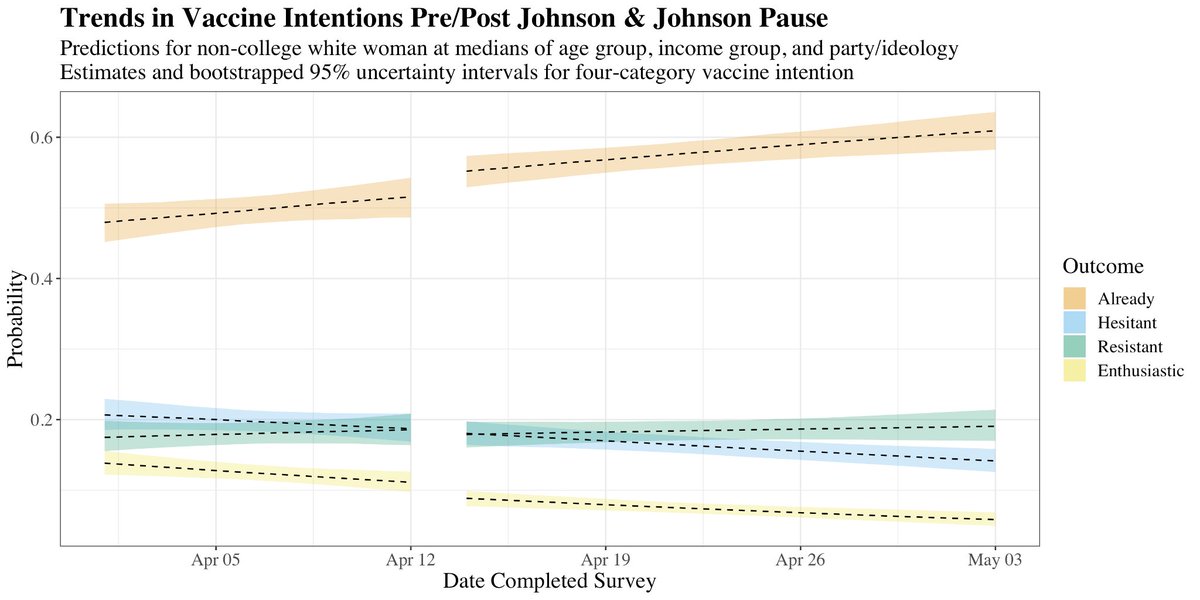
🇺🇦 Computational social scientist, Northeastern & Harvard
https://t.co/LRrr1jtBoN https://t.co/uRjhbjO6E5 https://t.co/QfAM9orQP1, https://t.co/zznnj8gTDN
How to get URL link on X (Twitter) App





 The scale of the survey, and the rapid change of vax sentiment/status through April give us a pretty good look at dynamics down to the daily granularity. & the pretty clear answer, despite very high awareness, is that the impact of the pause on vax demand was: BUBKES.
The scale of the survey, and the rapid change of vax sentiment/status through April give us a pretty good look at dynamics down to the daily granularity. & the pretty clear answer, despite very high awareness, is that the impact of the pause on vax demand was: BUBKES.





 Take away: lots of potential for a backfire here. Celebrities and athletes have null effects, and anyone with a political hue risks driving away anti-partisans more than they persuade same partisans. (See this figure for partisan breakdowns). 2/7
Take away: lots of potential for a backfire here. Celebrities and athletes have null effects, and anyone with a political hue risks driving away anti-partisans more than they persuade same partisans. (See this figure for partisan breakdowns). 2/7 
